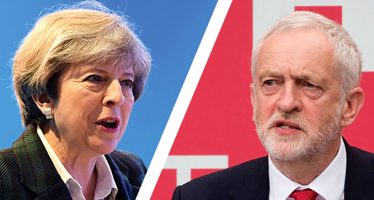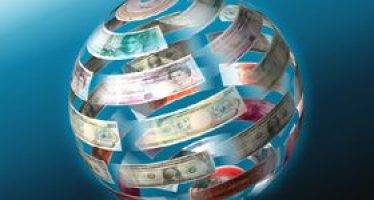The $130tn Opportunity in Sustainable Listed Real Assets
The investment opportunity in ensuring that existing infrastructure and real estate assets meet society’s evolving needs is set to increase significantly over the next three decades.

By Eric Pedersen Head of Responsible Investments at Nordea Asset Management
Our world is changing, and the global economy is at an inflection point. Rising geopolitical tensions, headlined by the war in Ukraine, have driven energy prices to unprecedented levels — which is fuelling an inflationary shock threatening consumers and industry. The war’s impact on elevated food prices is being compounded by changing weather patterns, as the climate crisis continues to spill into our everyday lives.
We must confront these challenges by adopting new approaches to reduce fossil fuel reliance and decrease energy use. In addition to accelerating the shift towards renewable and alternative power generation, the world needs to become more energy efficient.
At Nordea Asset Management we see major opportunities for sustainable change within industrial processes and transport systems, and in intelligent construction. Smart building systems can slash power consumption, costs, and environmental impacts. Green building techniques and materials, as well as innovative appliances, can reduce energy consumption by an average of 33 percent.
“We should not overlook the tremendous societal impact of increased sustainable real assets spending. Infrastructure and housing developments have not kept pace with recent demographic and societal change in many parts of the world, and major investment is needed to future-proof these assets.”
While we all understand the importance of the green transition for the planet’s future, sustainability is no longer the sole driver of change. The energy crisis clearly demonstrates the economic rationale for rethinking the status quo. On-going technological innovation to support the evolution we need is within financial reach.
Environmental and Societal Impacts
Identifying sustainable leaders within the real assets space will be imperative for enacting short- and long-term change. While industries within the infrastructure and real estate spaces are responsible for half of all carbon emissions today, these sectors also make up almost three-quarters of current capital spend towards global low-carbon initiatives. Real assets companies are at the forefront of net-zero action, by investing in green initiatives such as the installation of solar farms, upgrading transmission lines, and improving energy efficiency.
We should not overlook the tremendous societal impact of increased sustainable real assets spending. Infrastructure and housing developments have not kept pace with recent demographic and societal change in many parts of the world, and major investment is needed to future-proof these assets.
Real assets are appealing to investors in the current economic climate. Underpinned by essential needs — housing, power, transport and communications — these entities are often like monopolies, exhibiting contracted or regulated returns which provide a bedrock of stability.
Most real assets can pass-on price increases, which is why the space has historically outperformed global equities during periods of above-average inflation.
Nordea Asset Management at the Forefront of Change
The investment opportunity in ensuring that existing infrastructure and real estate assets meet the evolving needs of society is set to be worth upwards of $130tn over the next three decades. We are already witnessing a multitude of compelling corporate opportunities tied to the themes of environmental and social stewardship and technological evolution.
LINK, a diversified property-owner headquartered in Hong Kong, is committed to net-zero by 2035, with an interim target for 2025. In keeping with its commitment to SBTi standard, the company seeks 100 percent green building across its portfolio by 2025/2026 and reduced its carbon emission intensity by 15 percent over the past two years.
Another example is National Grid, the owner of critical UK electricity transmission networks. The company is at the forefront of environmental stewardship. Between 2022 and 2026, National Grid will undertake capital expenditure of £30-35bn to ensure the UK is able to meet its net-zero targets.
When it comes to technological transformation, Portuguese electric utilities group EDP is a shining light in decarbonisation innovation. It is one of the world’s largest renewable energy developers, generating 24.7GW, which services nine million customers. EDP currently has a hydrogen capacity target of 1.75GW by 2030. It aims to abandon all coal use by 2025 and operate with 100 percent renewable capacity by the end of the decade.
And within social stewardship, companies such as Ventas, the diversified healthcare REIT with 1,200 properties across the US, Canada, and the UK, are well positioned. Ventas is a beneficiary of secular trends, including senior housing demographics and accelerating demand from the medical office and life-science markets. While the US senior population is seeing significant growth, senior housing supply in the country has fallen 66 percent since 2017.
By Eric Pedersen Head of Responsible Investments at Nordea Asset Management
Nordea Asset Management is the functional name of the asset management business conducted by the legal entities Nordea Investment Funds S.A. and Nordea Investment Management AB (“the Legal Entities”) and their branches and subsidiaries. This document is advertising material and is intended to provide the reader with information on Nordea’s specific capabilities. This document (or any views or opinions expressed in this document) does not amount to an investment advice nor does it constitute a recommendation to invest in any financial product, investment structure or instrument, to enter into or unwind any transaction or to participate in any particular trading strategy. This document is not an offer to buy or sell, or a solicitation of an offer to buy or sell any security or instruments or to participate to any such trading strategy. Any such offering may be made only by an Offering Memorandum, or any similar contractual arrangement. This document may not be reproduced or circulated without prior permission. © The Legal Entities adherent to Nordea Asset Management and any of the Legal Entities’ branches and/or subsidiaries.
You may have an interest in also reading…
UK: Casino Politics
In a triumph of cautious optimism over alarmist gloom, UK voters delivered Prime Minister Theresa May a comeuppance of sorts,
MIGA (World Bank): During the Storm – Shift from North to South FDI
By Manabu Nose and Moritz Zander[1] At MIGA (the Multilateral Investment Guarantee Agency) we see the principal near-term risks for
Charlie Hebdo Attack: The Triumph of the Last Laugh
In the wake of the terrorist attack on the French satirical magazine Charlie Hebdo, which left ten staff members and
















































































